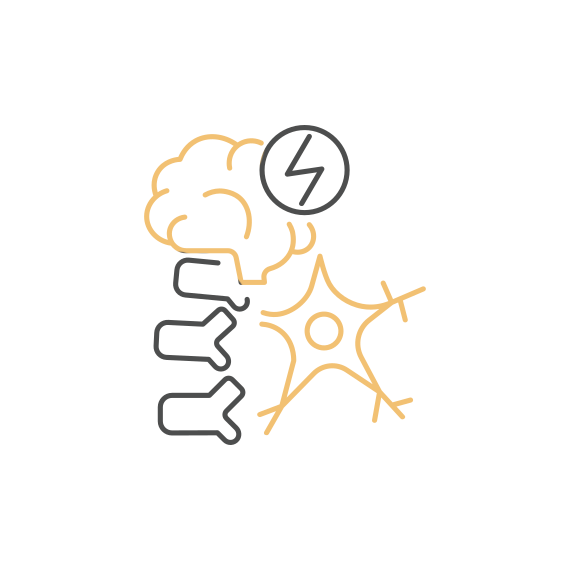Neuromuscular Disorders
Neuromuscular disorders (NMDs) encompass a diverse group of conditions that affect the nerves and muscles, disrupting the normal functioning of the neuromuscular system. The neuromuscular system involves the nerves that send signals from the brain and spinal cord to control muscle movements. When there is a problem with these nerves or the muscles themselves, it can lead to various neuromuscular disorders. These disorders can be acquired or inherited, and they can affect people of all ages.
Some common types of neuromuscular disorders include:
- Amyotrophic Lateral Sclerosis (ALS): ALS, also known as Lou Gehrig’s disease, is a progressive neurodegenerative disorder that affects nerve cells in the brain and spinal cord, leading to muscle weakness and atrophy.
- Charcot-Marie-Tooth Disease (CMT): CMT is a hereditary condition that affects the peripheral nerves, leading to muscle weakness and sensory impairment, particularly in the extremities.
- Peripheral Neuropathy: This is a broad term for conditions that involve damage to the peripheral nerves, causing symptoms like pain, numbness, and weakness in the affected areas.
- Myasthenia Gravis (MG): MG is an autoimmune disorder that affects the neuromuscular junction, causing muscle weakness and fatigue, especially during repetitive movements.
- Multiple Sclerosis (MS): MS is an autoimmune disorder that affects the central nervous system, leading to a wide range of symptoms, including muscle weakness and coordination problems.
Treatment for neuromuscular disorders varies depending on the specific condition and its underlying cause. It may include medications, physical therapy, assistive devices, and, in some cases, surgical interventions. Since many neuromuscular disorders are chronic and progressive, supportive care and symptom management play a crucial role in improving the quality of life for individuals affected by these conditions. Early diagnosis and a multidisciplinary approach involving neurologists, physical therapists, and other healthcare professionals are essential for effective management.


